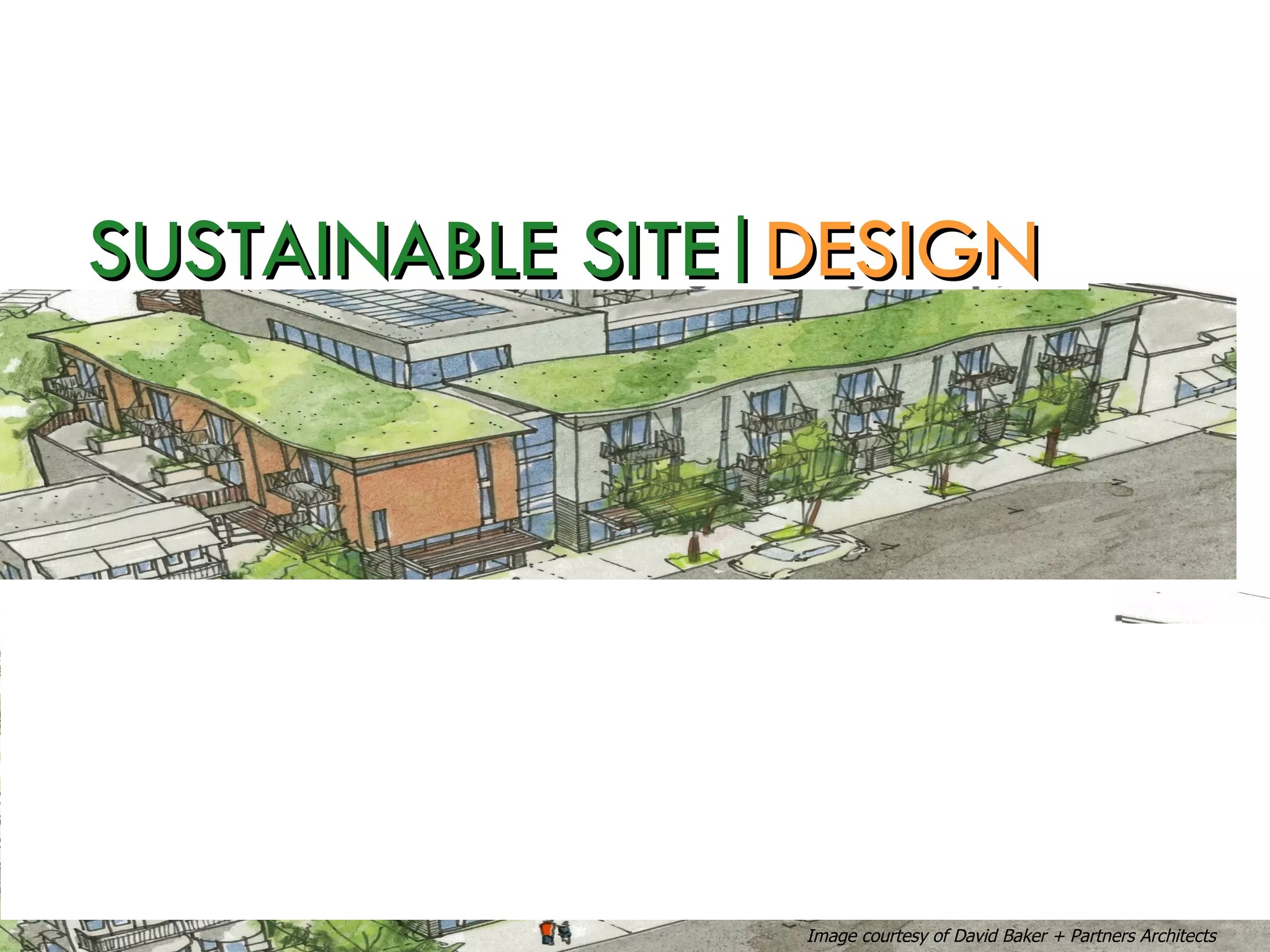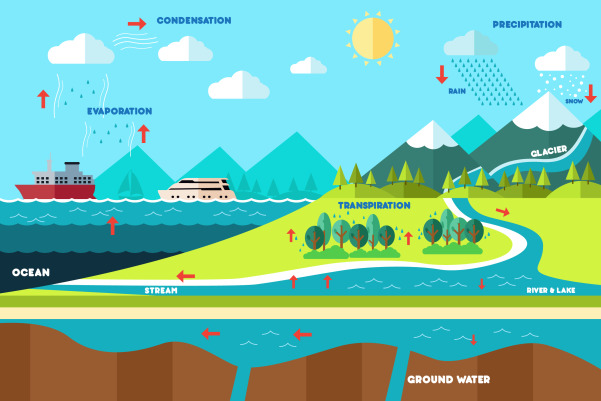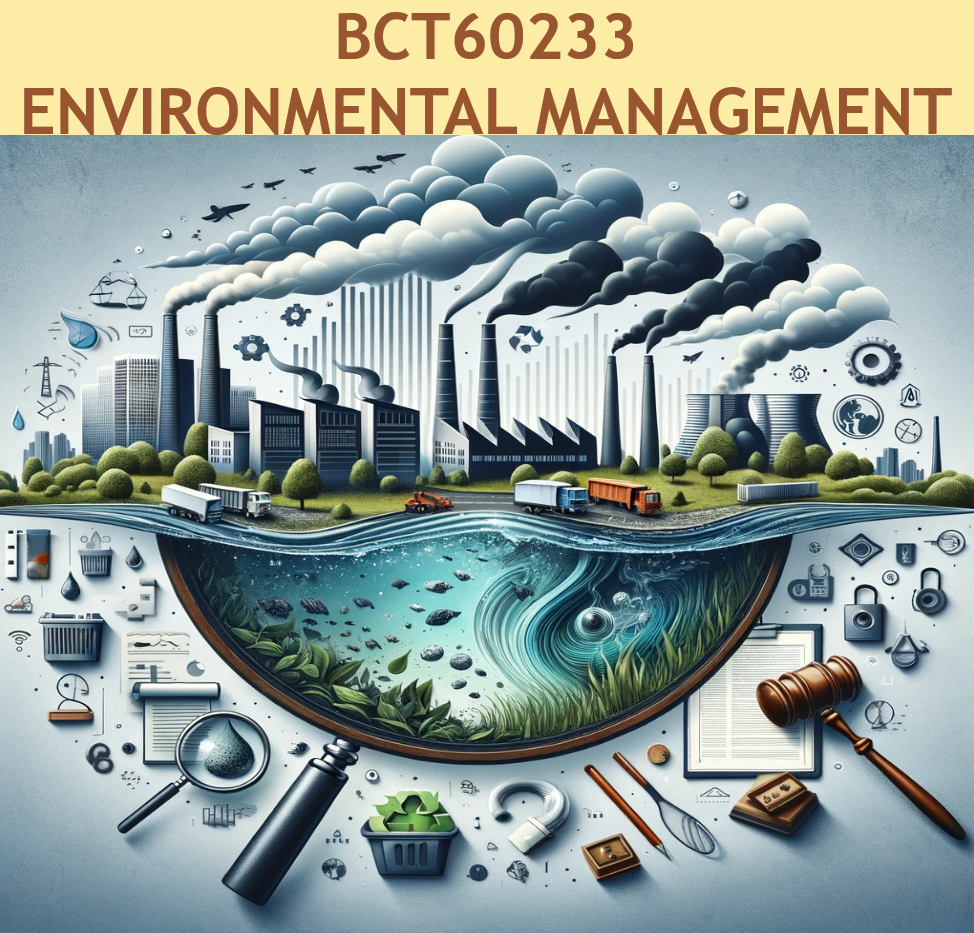SYNOPSIS:
SUSTAINABLE SITE DESIGN focuses on the importance to create and sustain a
high quality of community values and environmental responsibility in the design and
construction of infrastructure and landscape. This course concentrates on
environmental quality standard in site planning through water conservation, storm
water management and landscape management. Under this direction, quantity and
quality control system in storm water management will be considered in conjunction
with landscape planning to produce a sustainable site design.
- Teacher: MAZLINA BT ALANG OTHMAN ALANG OTHMAN
- Enrolled students: 35
- Teacher: MAZZIYATOL FARIZZA BINTI MAT Pn. Mai
- Enrolled students: There are no students enrolled in this course.
ENGINEERING ECONOMICS equips students with basic concept of time value of
money and methods for alternative and investment evaluation. It covers the definition
and scope of engineering economics, concept of time value of money, present
equivalent value, annual value, internal rate of return, payback method, profitability
index method, inflation, depreciation and company taxation. The course provides the
knowledge in conducting analysis and decision making for alternative project selection
or investment evaluation using economic criteria.
- Teacher: AZUIN BINTI RAMLI BCT
- Teacher: SAMIKHAH BINTI MUHAMMAD @MUNIR Samikhah
- Enrolled students: 25
BUILDING INFORMATION MODELLING (BIM) is a digital representation of physical and functional characteristics of a project lifecycle of a building construction. The fundamentals, theory and concept in this course builds upon the BIM concepts introduced in Civil Engineering and illustrates how BIM modelling tools are used to design, analyze, and model building systems including structural, mechanical, electrical & plumbing (MEP). This course is a theory and concept of BIM and a project-based where students gain knowledge and skills on the implementation of BIM concepts from planning to design stage.
- Teacher: SUHAIZAM B. ROSLI @ SHUIB Mr
- Enrolled students: 36
HYDROLOGY on applications in engineering particularly related to water
resources. Hydrological aspects will be introduced and discussed and it is related to
the understanding of hydrological processes. These processes are precipitation,
evaporation, and transpiration, surface run off, ground water flow, infiltration and
interception. Some of these processes will be discussed in detail together with the
basic analysis and concept design in accordance to Urban Storm Water Management
Manual for Malaysia (MASMA). Upon completion of the course, students are
expected to be able to describe and assess all the physical processes found in the
hydrologic cycle together with the basic hydrologic analysis methods.
- Teacher: AZIZAH BINTI HARON a HASSAN AZIZAH
- Enrolled students: 39
GEOTECHNICAL ENGINEERING is a compulsory course for civil engineering technology students. The content of this course provides them with in depth understanding and exposure of the laboratory practical. It covers basic soil properties which, consist of soil composition, soil classification and soil compaction. Besides that, it also discusses water in soil, soil shear strength, stresses in soils, compressibility and consolidation of soils and slope stability. This topic is important to civil engineers where most of the problems that occur at site will involve geotechnical and soil mechanics. At the end of this course, students will be able to apply their knowledge of basic soil properties, water in soil and shear strength parameters in the planning, analysis, design and supervision of related geotechnical works.
- Teacher: PANBARASI A/P GOVINDASAMY DR PAM
- Enrolled students: 38
ENVIRONMENTAL MANAGEMENT provides knowledge of water, air and noise
pollution. This course also provides knowledge on solid waste and hazardous waste
management. Students will also be given the knowledge of environmental law in
Malaysia, the management of the environment for sustainable development and
Environmental Impact Assessment (EIA) method in planning activities. The students
will learn to relate and apply the Environmental Quality Act (127) 1974 and the
amendments, to control pollution with resource conservation and energy recovery
using assessment tools in EIA.
- Teacher: Rufaizal bin Che Mamat .
- Enrolled students: 35
ENGINEERING TECHNOLOGIST IN SOCIETY course looks into the role of engineering technologist in nation building, evaluation of engineering technologist, role of engineering technologist in society, laws related to public safety, health & wellbeing of the community and environment, future engineering technologist, professionalism and codes of conduct, engineering technologist as a profession, ethical theories, BEM code of professional conduct. Topics covered also include ethical problem solving techniques, analysis of issues in ethical problems, line drawing, flow charting, handling of conflicting problems, acceptance of benefits and compensation, ethical practice in Occupational Safety and Health at work, rights and responsibilities of engineering technologist in promoting sustainable development for the economy, society and environment, career guidance and project management.
- Teacher: AZUIN BINTI RAMLI BCT
- Teacher: NORAZIAH BT. HAMID NORAZIAH
- Enrolled students: 71






